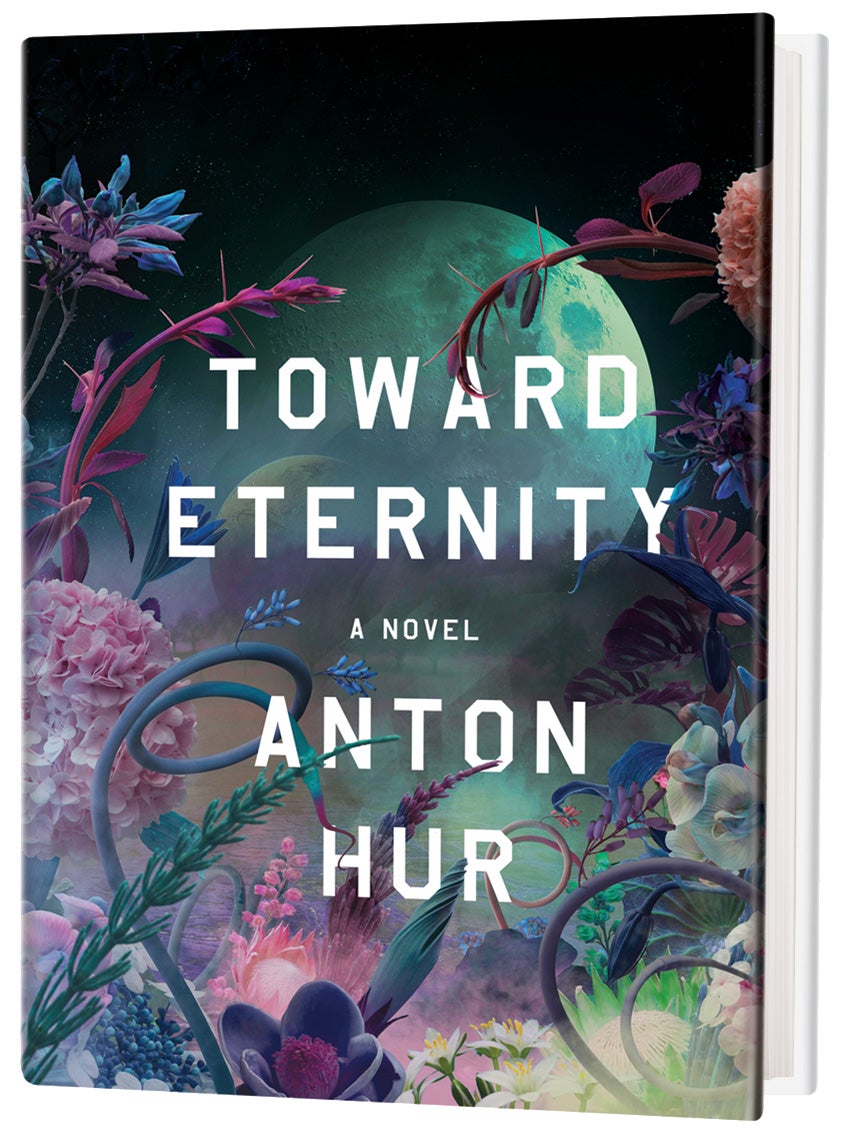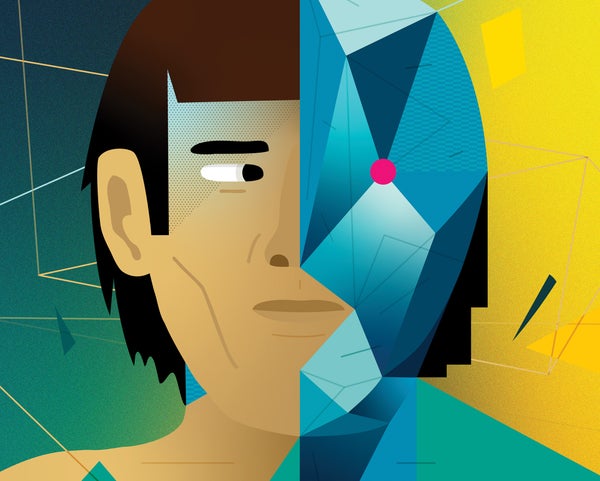FICTION
Toward Eternity: A Novel
by Anton Hur.
HarperVia, 2024 ($26.99)
Anton Hur’s Toward Eternity blends the music of science and of poetry to tell a tale of future love, war, and tiny robots known as nanites. Like a reverse-engineered allegory, the novel attempts to fuse the forward momentum of the reader’s care for its most compelling character, Yonghun Han, with high-concept ideas about biotechnology, the future of Earth and the question of identity.
On supporting science journalism
If you're enjoying this article, consider supporting our award-winning journalism by subscribing. By purchasing a subscription you are helping to ensure the future of impactful stories about the discoveries and ideas shaping our world today.
Han is “Patient One.” He’s been remade in a laboratory in Cape Town, South Africa, by Mali Beeko, a doctor who has cured Han’s cancer through nanite cellular replacement, which essentially renders the recipient immortal. Although Han’s body is new, a scar from a previous kitchen accident has returned to his skin, as if the physical can be affected by the power of the mind. When Han disappears from Beeko’s Singularity Lab into thin air, no one has an explanation—and they’re equally mystified when he reappears. This returned Han believes he is “not Yonghun Han. I am whatever came back with his body.” Han finds Beeko’s journal and continues to write in it in an attempt to make sense of his experience. This is the conceit that carries the book forward through time as various characters inherit the journal and propel the narration into the extremely far future.
The early chapters are suffused with emotional resonance thanks to Han’s extraordinary love for his husband, Prasert, a scholar of 19th-century poetry who has been dead for a decade. There are flashback scenes of Prasert ceding the last bite of a meal to Han and giving Han a back rub, all of which convey a genuine sweetness and authenticity that is rare in depictions of love on the page. The not-Han that has come back grapples with Han’s memories of that relationship in ways that question personhood and identity: “I am the recursion, the vessel necessary for the love to return, a love so great it has overcome the death of its previous vessels to live in this world again, searching for what it had lost.”
The tenderness of that bond also opens a space for Hur to explore the confluence of science and the arts. Han creates an artificial-intelligence entity named Panit to help him better understand poetry. A discussion between Han and Panit about Christina Rossetti’s “Winter: My Secret” showcases the novel at its best. In a sense, Han is talking to a version of himself, having trained the AI on his experience of poetry, and the scene should be solipsistic. Instead this conversation about Rossetti “teasing a secret but never revealing it” evokes, again, Han’s deep love for Prasert.
Are we really so resigned to catastrophe that we just trudge forward, hoping to eke out some entertainment before the end?
Soon enough the notebook is passed to Meeko’s Patient Two. Ellen, a musician, has a more aloof tone, and her perspective serves as a useful contrast to Han’s remembered warmth, accentuating it greatly. As the poetry cedes pride of place to music, Ellen’s encounter with doubles of herself presages a future nanite-person takeover of the world while giving clues to the mystery of Han’s disappearance and reappearance. When Panit, the AI, gets time with the notebook, we learn more about Meeko’s experiments. But as the novel slips officially into the future with part two (“The Future”), other kinds of slippage occur.
The science of fiction writing has few hard rules except that almost anything can work. The scaffolding of an idea can carry a novel through to the end, even without maintaining the psychological richness Han’s early chapters accomplish so well. But characterization—committing to interiority and depth of character—is harder to sustain without the author’s constant and devoted attention. A novel that set out to be pathos becomes almost exclusively a science experiment.
It begins with a Panit-Han hybrid, a fusion persona in physical form that overuses the word “ghost” to a pathological extent. When this hybrid pines for a child and encounters a doomed love, the scenes echo Han’s relationship with Prasert, though now to lesser effect. As the journal passes from hand to hand in the future, it feels as if the pages are becoming washed out, the entities writing it less and less knowable.
As the narrative progresses into the far future, the structure becomes harder to follow. The story swaggers through time and character perspectives, the connective tissue often lacking or delivered to the reader through explanatory dialogue. I would have loved to encounter more tension between the rising dominance of AI and the technology’s huge drain on resources and thievery of people’s intellectual property and labor. These issues are present but mostly through sheer extrapolation.
Part of what makes the novel increasingly hard to follow is the blurriness of the scenes. For the most part, Hur doesn’t provide much description of the future settings except when noting there are “trees” or “rocks.” What’ll be perhaps most glaring to readers who appreciate contemporary science fiction is that Hur largely sidesteps the evolution and consequences of our climate crisis. Instead of exploring those rough edges, he mostly obliterates them by using the device of a widespread nuclear war. A war that brings mass extermination is hell, all right, but with its harshness blasted out, the future doesn’t feel quite as real or fully realized.
The novel comes to a halt in a long section written from the viewpoint of Delta, a version of Panit-Han’s daughter grown in a nanite vat. Delta has just done something terrible to humanity, yet there’s little sense of the weight of Delta’s actions in the storyline. Instead of something incendiary, something radical, we get mostly more dialogue reasonably explaining the future.
Are we really so resigned to catastrophe that we just trudge forward, hoping to eke out some entertainment before the end? This tone of amiability that creeps into the writing seems to be meant to please the reader, to dull the pain of humans losing who we are. I often wished that the language were sharper.
Writing about the effect of poetry is different than being poetry. For a while Toward Eternity is poetry, until entropy sets in. By the time the novel reaches its end, the carrying forward of the beloved Han feels attenuated, grasping. The burning core of the narrative—that beautifully depicted relationship in the early chapters—is a distant flame you no longer feel the heat of. The things that make us uniquely human are simply too far in the past.

